Federal judges in the U.S. go through a meticulous process, involving the President, home-state Senators, and the Senate Judiciary Committee. When there's a vacancy, Senators toss around names and recommend candidates to the President. The American Bar Association checks qualifications—because, surprise, we want qualified judges. Then, it's off to the Senate for approval, where a simple majority is needed. It's basically a high-stakes game of political chess. Want to know more about the behind-the-scenes drama?
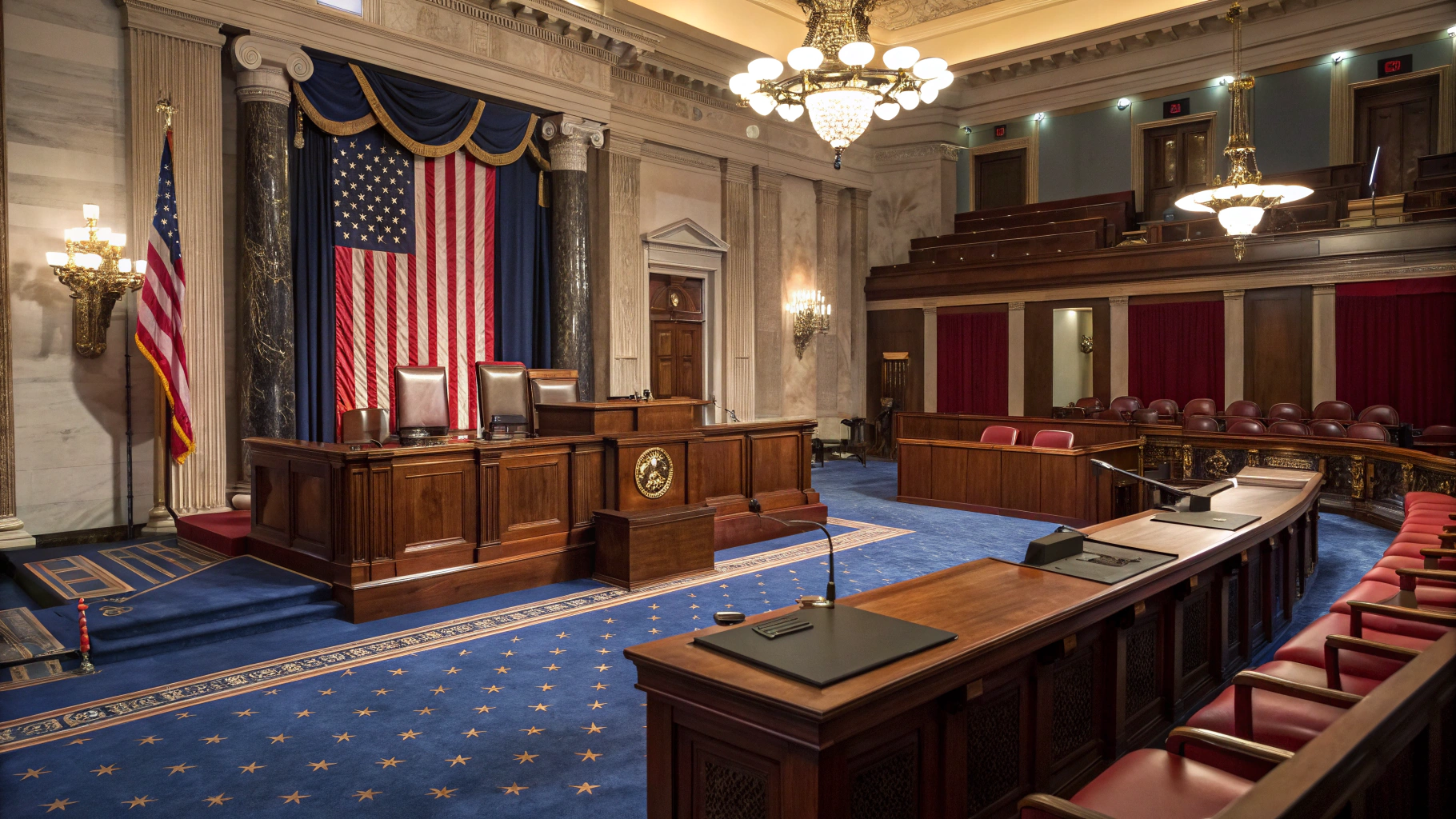
When a federal judge steps down, whether by choice or by the grim reaper's hand, a vacancy opens up, and the circus of judicial confirmation begins. It's a process that could make even the most patient suffer from acute boredom.
A federal judge's departure sparks a tedious circus of judicial confirmation, testing even the most patient souls.
First off, a judicial vacancy doesn't just happen randomly. It occurs when a judge retires, resigns, goes senior, or—let's be real—kicks the bucket. Sometimes, Congress decides to create new judgeships, but that's a whole other drama.
Home-state Senators hold a lot of power in this show. They often set up merit-based selection commissions to sift through potential nominees. These commissions are supposed to get community input—because who doesn't want the local coffee shop owner weighing in on judicial qualifications? Significant percentage of federal judgeships are currently vacant, which adds urgency to the process.
After some back-and-forth, they send recommendations to the White House. If the Senators drag their feet, well, good luck with that nomination. It might get stuck in limbo.
Once the President gets involved, the real fun begins. After consulting with those Senators and doing some vetting, the President formally nominates someone. But hold your horses! The American Bar Association (ABA) must weigh in next. They evaluate the nominee's qualifications, giving ratings from "Well Qualified" to "Not Qualified." Nothing like some anonymous peer reviews to spice things up. This step is a pivotal component of the confirmation process because it ensures a baseline of professional standards.
Next, the Senate Judiciary Committee takes over. They send out "blue slips" to the home-state Senators. If those Senators don't like the nominee, they can just sit on the slips, causing delays. If they're on board, hearings happen. Senators question the nominees like they're on a reality show.
Finally, the Committee votes and reports back to the full Senate.
And then, it's showtime. The Senate votes. A simple majority is needed for confirmation, but don't underestimate the power of a cloture vote if the debates get too lengthy. Article III judges hold office during good behavior with lifetime appointments, ensuring they can make decisions without political pressure.
Once that's done, poof! The nominee is now a federal judge for life. Decisions without political pressure? That's the dream!
Frequently Asked Questions
What Qualifications Are Required to Become a Federal Judge?
To become a federal judge, the bar is surprisingly low—no constitutional qualifications exist.
Most judges have law degrees, though that's not a hard rule. Experience? Absolutely essential. Background checks? You bet your bottom dollar.
The American Bar Association gives a thumbs up or down on nominees. So, basically, if you've got legal smarts and a clean record, you might just be on your way to a lifetime gig in a black robe.
How Long Is a Federal Judge's Term?
A federal judge's term? It's fundamentally for life—unless they misbehave, of course.
They serve during "good behavior," which sounds nice but is pretty vague. No term limits. Judges retire when they feel like it or due to health issues.
Impeachment? That's rare, but possible. So, expect these folks to stick around for decades.
Stability? Sure. But some think we need a little fresh blood in there. Just saying.
Can Federal Judges Be Removed From Office?
Yes, federal judges can be removed from office, but it's not as simple as packing up their things.
It all starts with impeachment—an exclusive process that requires the House to vote on charges. If they get the thumbs-up, the Senate steps in for a trial. A two-thirds vote is needed to boot them out.
Eight judges have faced this fate. So, good luck being a judge; it's a tough gig!
What Role Does the President Play in Judicial Appointments?
The President's role in judicial appointments? It's simple: they pick judges.
But wait—there's a catch. The nominees need Senate approval.
The President usually chooses folks who share their views, so it's a political game. Nominations can take ages, and sometimes they stir up a hornet's nest in the Senate.
It's all about legacy, power, and who can outlast whom. Life terms? Yeah, those judges stick around long after the President's gone.
Are There Different Types of Federal Judges?
Yes, there are different types of federal judges.
You've got Supreme Court Justices—basically the big shots.
Then come Circuit Judges, who handle appeals.
District Judges? They're the ones dealing with everyday cases.
There are Senior Judges—think of them as retired pros still in the game, and Chief Judges, who run the show in their courts.
It's a whole hierarchy, with each type playing a different role.
Who knew courts could be so complicated?
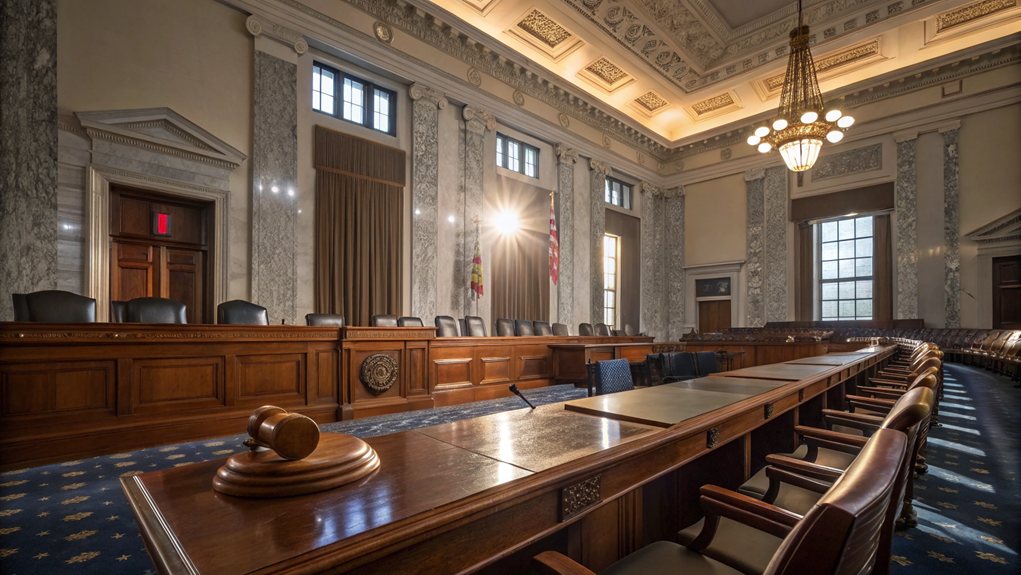
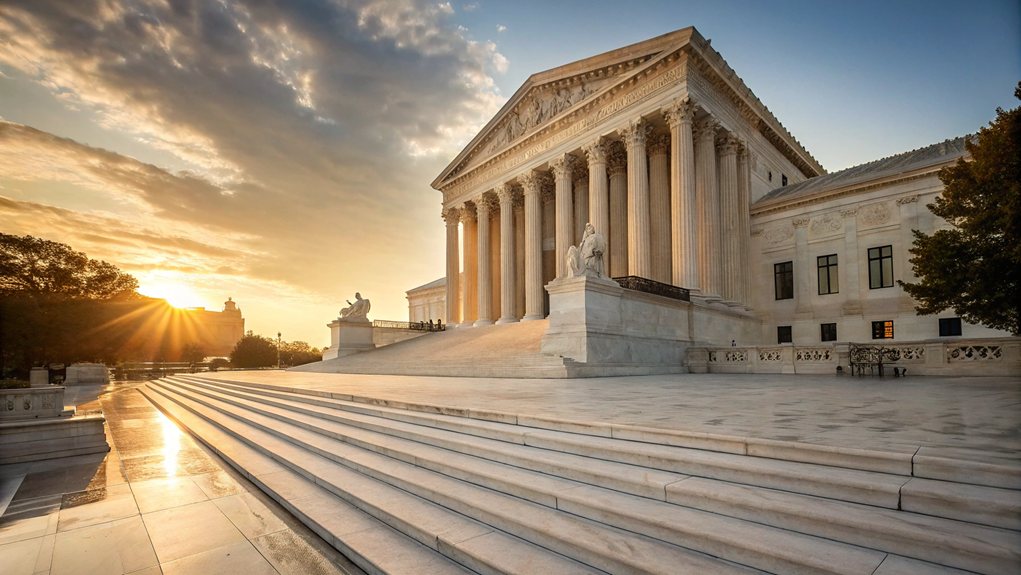
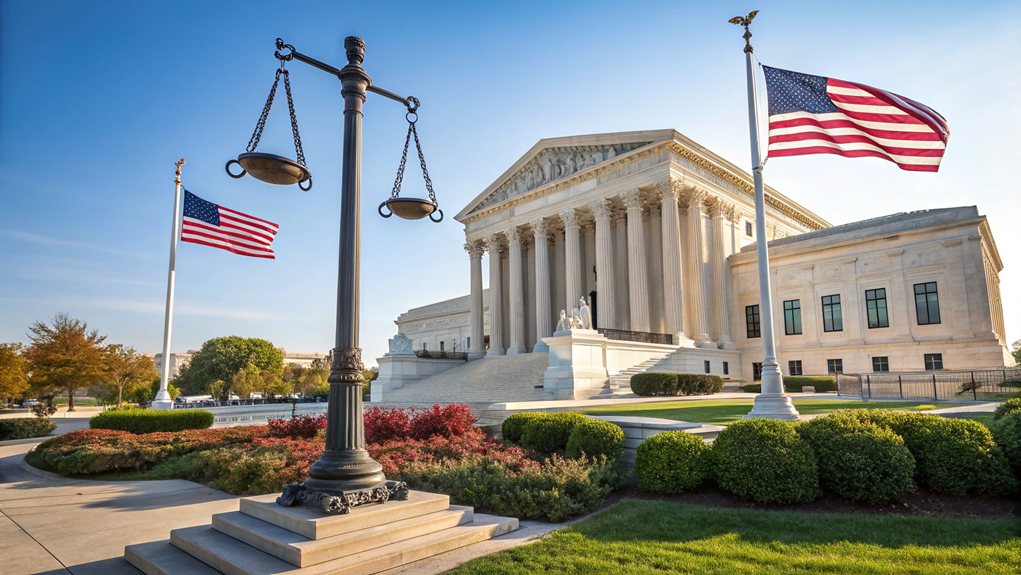
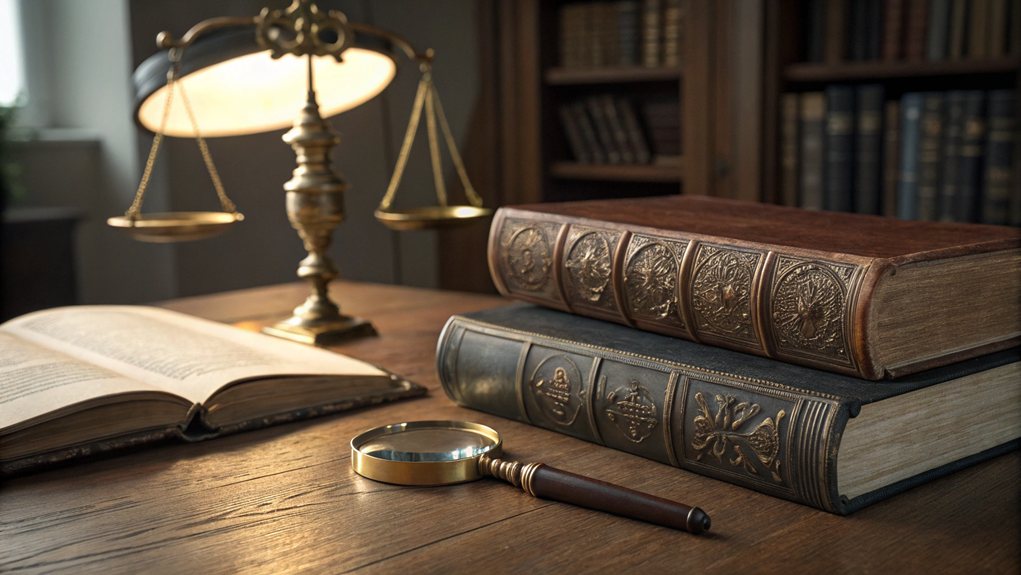
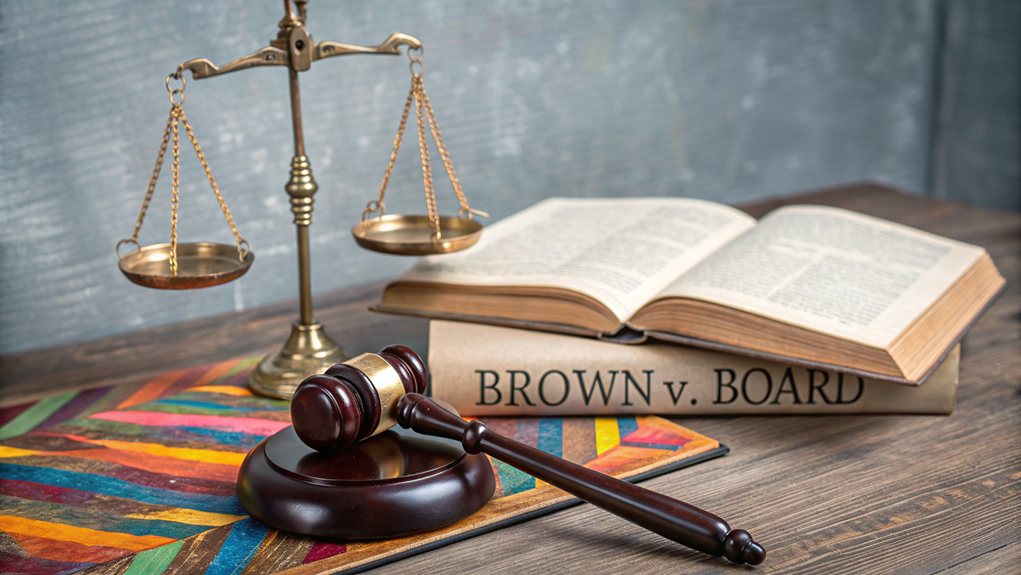
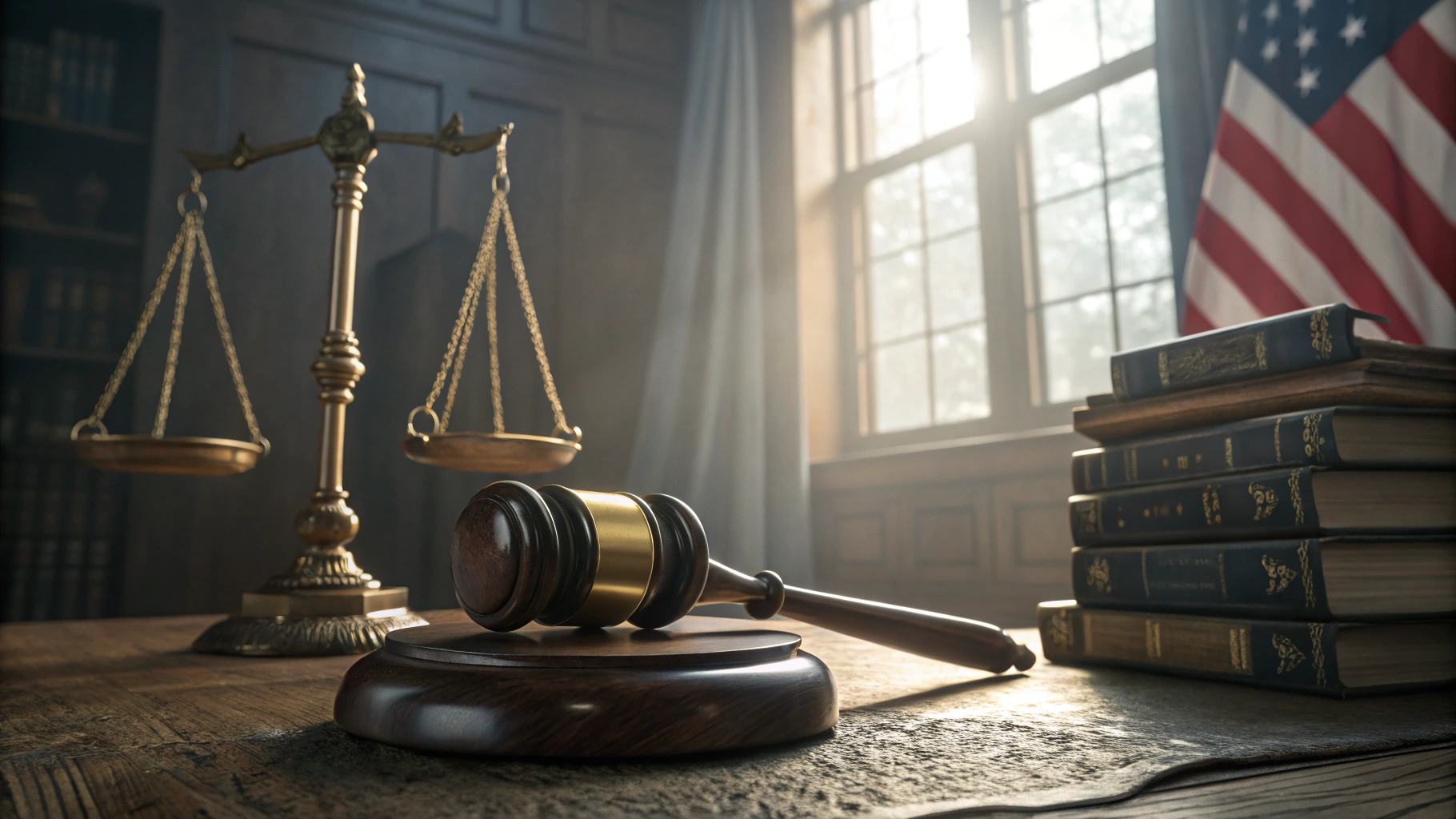




1 comment
Comments are closed.